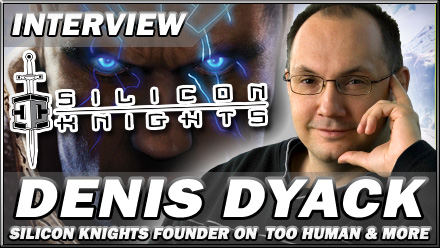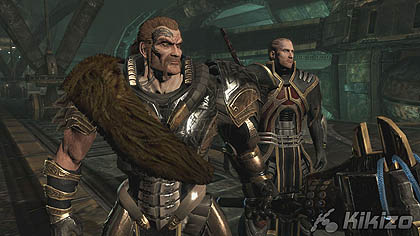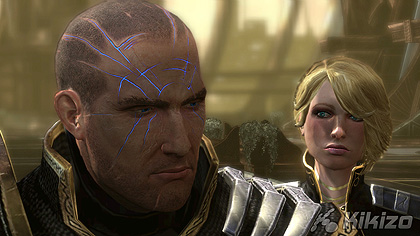Interview: Silicon Knights' Denis Dyack
We talk Silicon Knights' founder and president to get his latest views on the games industry, as well as the lowdown on Too Human, which is finally released later this month.

What if there were only one games console in the future? What if games journalists never previewed incomplete preview builds of games? And what if Vikings were let loose in space? Denis Dyack, founder and president of Silicon Knights, has answers to all these questions.
With his company's latest labour of love Too Human finally seeing the light of day later this month, Dyack will be celebrating the end of a gargantuan development cycle but at the same time, only just beginning its venture into the Too Human trilogy.
The Ontario-based company began in 1992 and has crafted games like Blood Omen: Legacy of Kain for the original PlayStation and worked with Nintendo as a second-party developer on Eternal Darkness and Metal Gear Solid: Twin Snakes.
Dyack is known for his nonconformist views on the games business, and today the questions raised by such views are arguably more pertinent than ever. With this in mind, we stole some of his time in San Francisco to pick his brains.
Kikizo: You have said that it's a problem in the industry for developers to show games in preview form. I was just wondering whether your thoughts have changed on that, since you are showing Too Human in preview form a lot lately?
Dyack: My thoughts haven't changed a bit. I think our industry needs to mature in such a way that, what's best for consumers, what's best for press and what's best for designers and publishers and their games, are that games are really previewed and shown once they're finished, and then marketed and delayed later so people get the most honest, realistic opinion on what they're seeing.
Kikizo: Do you not think there is some value in early previews though, depending on the level of exposure?
Dyack: What I'm suggesting doesn't take away from previews, it just basically shifts the process. It's an economic model really. So the game would be done, and you'd get say a half hour preview, knowing that the game will be released in six months. So you get a preview, but the game's done. And then, a few months later, you'll look at it, review it, and you wouldn't have to guess whether this bug's going to be fixed, or the frame rate's going to be fixed, whether there are features hanging or not. That would all be factual, and the consumers wouldn't be misled, the press wouldn't be misled, the designers wouldn't make promises that they couldn't keep - and all these things I just think would improve the industry, so my opinion hasn't changed whatsoever.
Kikizo: OK. Another topic that people are talking about more and more is this idea of there being a single console, which I know that you've also made comments about - you have said that it's "inevitable"...
Dyack: Yes.
Kikizo: But do you think there would be negatives about that, and what do you think the possible timeline of that might be?













 Satoru Iwata Video Interview - the late Nintendo president spoke with Kikizo in 2004 as 'Nintendo Revolution' loomed.
Satoru Iwata Video Interview - the late Nintendo president spoke with Kikizo in 2004 as 'Nintendo Revolution' loomed. Kaz Hirai Video Interview - the first of Kikizo's interviews with the man who went on to become global head of Sony.
Kaz Hirai Video Interview - the first of Kikizo's interviews with the man who went on to become global head of Sony. Ed Fries Video Interview - one of Xbox's founders discusses an epic journey from Excel to Xbox.
Ed Fries Video Interview - one of Xbox's founders discusses an epic journey from Excel to Xbox. Yu Suzuki, the Kikizo Interview - we spend time with one of gaming's most revered creators.
Yu Suzuki, the Kikizo Interview - we spend time with one of gaming's most revered creators. Tetris - The Making of an Icon: Alexey Pajitnov and Henk Rogers reveal the fascinating story behind Tetris
Tetris - The Making of an Icon: Alexey Pajitnov and Henk Rogers reveal the fascinating story behind Tetris Rare founders, Chris and Tim Stamper - their only interview? Genuinely 'rare' sit down with founders of the legendary studio.
Rare founders, Chris and Tim Stamper - their only interview? Genuinely 'rare' sit down with founders of the legendary studio. The History of First-Person Shooters - a retrospective, from Maze War to Modern Warfare
The History of First-Person Shooters - a retrospective, from Maze War to Modern Warfare